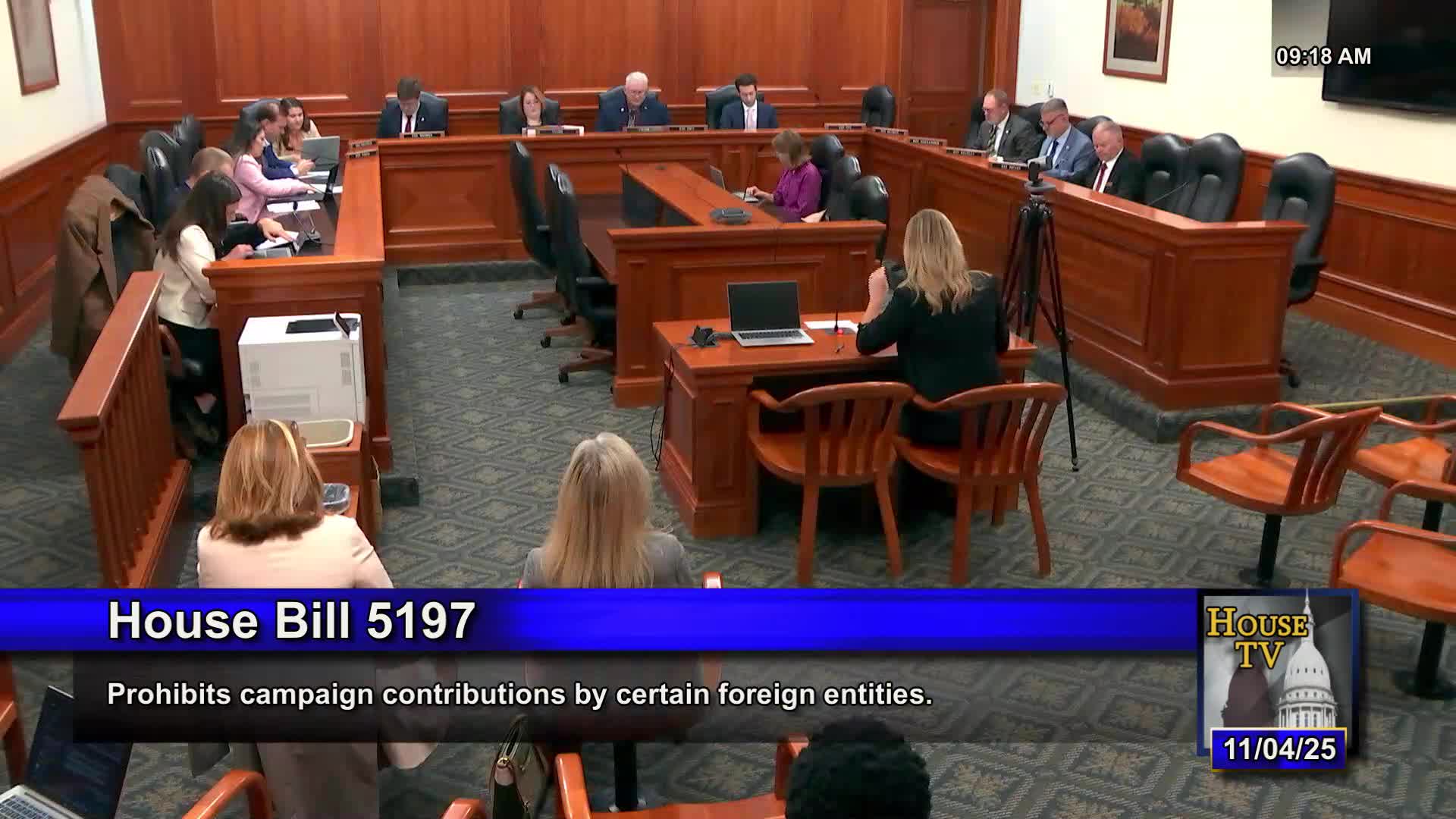Committee hears testimony for ban on foreign funding of Michigan ballot measures
Get AI-powered insights, summaries, and transcripts
Subscribe
Summary
Representative Smith introduced House Bill 51‑97 to bar foreign nationals from contributing to state ballot measure campaigns, saying the federal prohibition on foreign contributions to candidate campaigns does not extend to ballot questions.
Representative Smith introduced House Bill 51‑97, saying federal law already bans foreign nationals from contributing to candidate campaigns but "this prohibition does not apply to ballot measures." Smith told the committee the bill would close that loophole by banning foreign funding of ballot proposals and initiatives and cited Governor Gretchen Whitmer's 2021 veto letter urging bipartisan legislation on the issue.
Caitlin Sutherland, founding executive director of Americans Republic Trust, testified in support and said organizations tied to foreign donors have funneled millions into Michigan ballot campaigns. "One of their top donors is a reclusive Swiss billionaire named Hansroerg Wyss," Sutherland said, and she told the committee that the 16 30 Fund "has spent almost $34,000,000 in Michigan" across multiple initiatives.
Jason Snead, executive director of Honest Elections Project ACTION, also supported the bill and outlined policy elements he said are necessary for an effective ban: prohibit both direct and indirect foreign contributions, apply protections to independent expenditures, and require certifications that organizations have not received above a statutory foreign funding threshold (the bill cites $100,000 over four years as an example). Snead said the measure should apply to individual foreign nationals as well as foreign governments and political parties.
Committee members asked witnesses how the bill would address dark‑money groups and how enforcement would work given limited disclosure requirements for certain nonprofit entities. Snead said the bill would rely on affidavits or certifications under penalty of perjury and that investigators and tracking by watchdog groups could provide enforcement leads. Representative Wooden pressed whether there is a foolproof method to prevent all foreign influence; witnesses replied there is no guaranteed method but argued the bill would create transparency and enforcement tools that states currently lack.
No final vote was taken on House Bill 51‑97 during the hearing; the committee received testimony and proceeded to the next agenda item.
